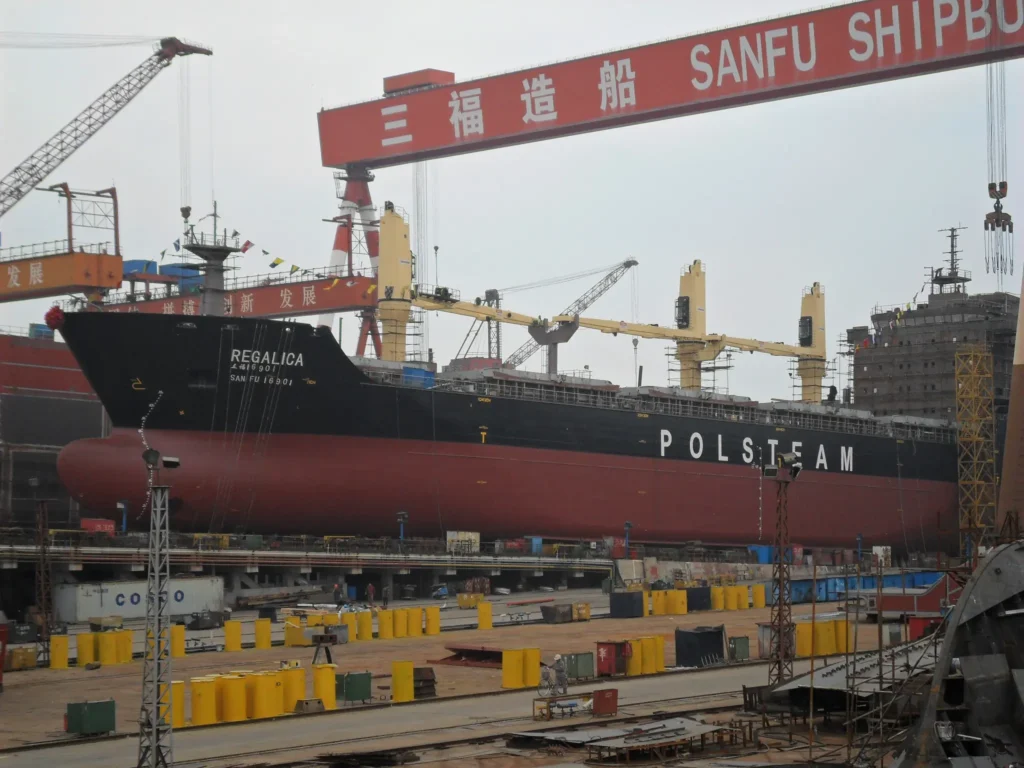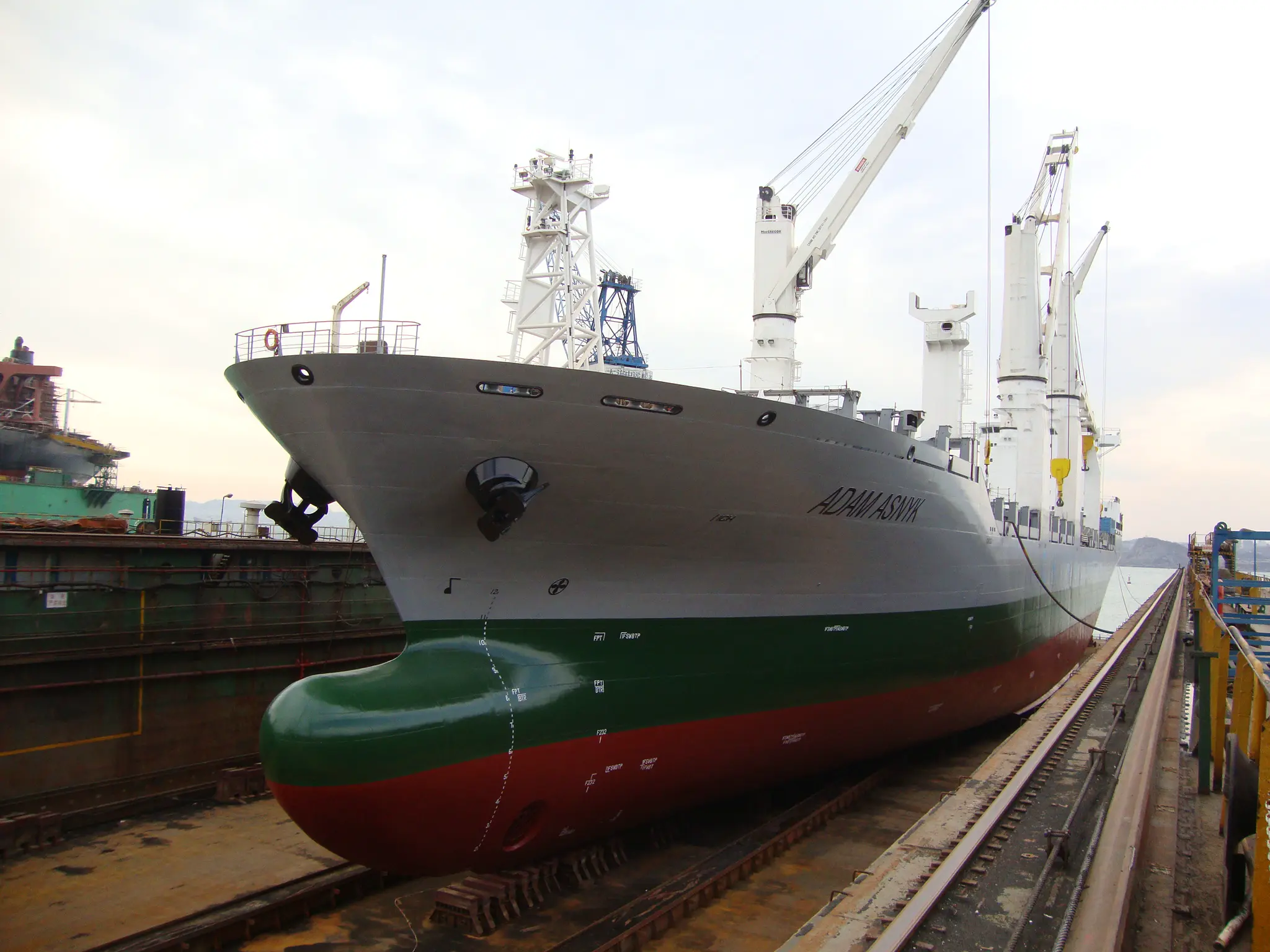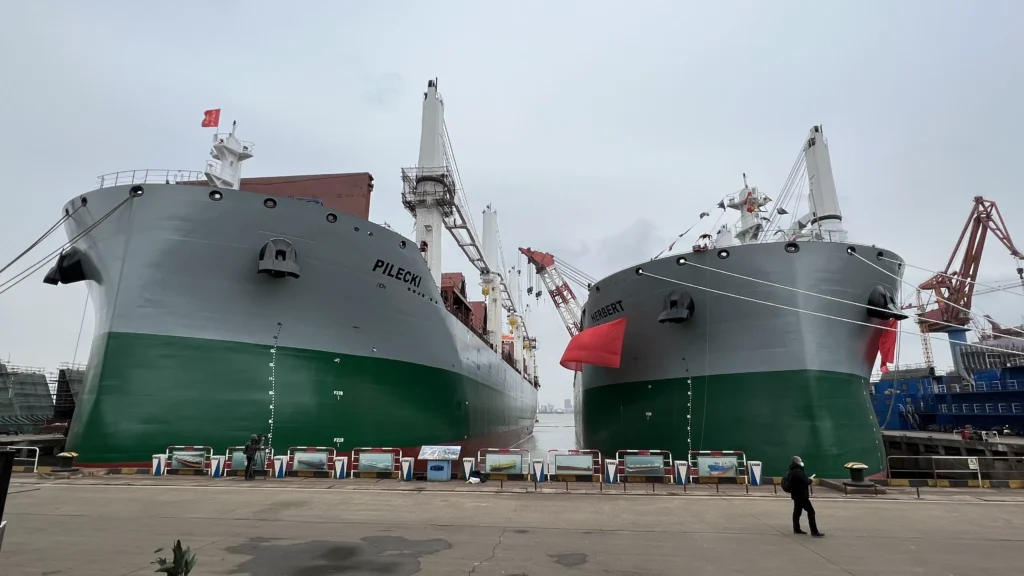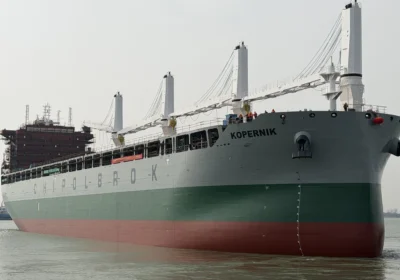The Polish Register of Shipping (PRS) is a company with 100% Polish capital, owned by the State Treasury. The company provides appraisal services, with a constantly expanding spectrum of services offered to clients around the world. A very important, traditional area of PRS activity is the supervision of the construction and operation of ships and other floating objects.
The history of today’s PRS dates back to the times before World War II. The idea to establish a Polish classification institution arose in 1932, in response to the difficulties that German institutions caused to the Polish inland fleet, primarily transporting goods between the ports of the Free City of Gdańsk and Gdynia. These difficulties resulted in problems with insuring Polish barges and cargo. Four years later, in 1936, the Polish Register of Inland Navigation was established.
Reactivating the classification activity after the war, an institution with a changed name was created – the Polish Register of Shipping. This was not just a formal change – it defined new tasks connected with Poland regaining 500 km of the sea coast.
In 1970, PRS was admitted to the International Association of Classification Societies (IACS). This was a milestone in the development of the Polish classification institution. Thanks to its inclusion in IACS, in 1971 PRS was included in the insurance clause of London Insurers – which allowed the use of the most favorable insurance rates for PRS-classed ships and the goods transported on them.
Membership in IACS and PRS’s involvement in the activities of other international organizations greatly accelerated the development of PRS. It also contributed to its “going out into the world”, which was manifested, among others, by an increase in the number of foreign flag ships in the tonnage volume supervised by PRS and the opening of foreign branches and representative offices servicing ships in shipyards around the world.
The origins of the Polish Register of Shipping in China date back to the 1950s and are related to the provision of technical supervision services on Polish ships calling at ports of the People’s Republic of China. They are also inseparably linked to cooperation with the Chinese-Polish Joint Stock Shipping Company “Chipolbrok”.
The 1980s were a time when the Polish shipbuilding industry was unable to meet all market needs and Polish shipowners began to order new ships from foreign shipyards, including Chinese shipyards. In 1986, the Polish Register of Shipping signed an agreement with the China Classification Society (CCS) regarding the supervision of the construction of four general cargo ships for “Chipolbrok” at the Jiangnan shipyard in Shanghai. These were ships with a deadweight of 16.2 thousand tons, reinforced to transport heavy loads and adapted to transport containers. This was the first joint supervision conducted by PRS together with the Chinese classification society.
Due to the growing demand for the services of a Polish classification society in China, in 2000 a permanent PRS representative office was established in Shanghai. The main task of the office’s employees was to survey PRS class ships calling at Chinese ports and undergoing repairs in Chinese shipyards. In 2004, the PRS representative office was transformed into the PRS Shanghai Branch Office.
The years 2005-2013 were a time of further significant increase in the number of PRS supervisions over the construction of new ships, thanks to the Polish Steamship Company “Polsteam”, which implemented a fleet renewal program. At that time, 42 bulk carriers with a total deadweight of approximately 1.7 million tons were built for this shipowner in the shipyards of China and Japan. PRS participated in all these constructions in China, conducting their supervision together with three other classification societies: Lloyd’s Register, Det Norske Veritas, and the American Bureau of Shipping.
The longest series of ships for Polsteam was built at the shipyard in Tianjin – 18 bulk carriers with a deadweight of 38,000. tone each. In turn, in the shipyard in Nantong a series of eight so-called lake carriers, i.e. ships adapted to pass through the system of locks and canals on the St. Lawrence River, which leads from the open seas to the Great American Lakes, was built. These ships, with a deadweight of 30,000 tons, received names derived from the names of Polish lakes. A series of eight more ships – handy-size bulk carriers (deadweight of 17,000 tons), named after Polish rivers, were constructed at the shipyard in Taizhou. Another shipyard, in Jingjiang, built four large bulk carriers (80,000 tons each) of the Kamsarmax type, which were named after Polish mountain peaks.
Due to the construction of a large number of ships for Polsteam in China, in addition to the already operating representative office and then the PRS branch office in Shanghai, PRS surveyors’ offices were opened directly in Chinese shipyards. Following the changing needs, surveyors from Poland with appropriate specialties were delegated to these offices. The workload of PRS surveyors in China was exceptionally heavy at this time. Apart from orders for Polsteam, in 2007 the construction of six universal general cargo ships with a deadweight of 30,000 tons, ordered by the Chinese-Polish Joint Stock Shipping Company “Chipolbrok”, began at the COSCO shipyard in Dalian. Three ships from this series were built for the PRS class and under its supervision. The ships, named “Adam Asnyk”, “Parandowski” and “Kraszewski”, were put into operation in 2009-2011.
In 2014, PRS carried out the first supervision over the construction of ships for a Chinese shipowner – “Jiuzhou International Shipping Co. Ltd.” from Fuzhou. It was a series of three sand transport ships constructed at the Fujian Bolong Shipbuilding Industry Co.Ltd. shipyard in Fu’An.
Six years later, PRS signed an agreement with the Chengxi shipyard in Jiangyin to supervise the construction of two general cargo ships with a deadweight of 62,000 tons each for “Chipolbrok”. These new constructions were supervised by surveyors from the PRS Shanghai Branch Office, Messrs. Jin Sheng Chen, Chong Wang, and Zhiwei Cheng. The ships were put into operation in early 2022. At the naming ceremony, they received the names after Polish war heroes: “Herbert” and “Pilecki”.
To enable the current branch office to function fully under local law, in 2011, the Polish Register of Shipping registered a subsidiary in China called “PRS (Shanghai) Vessel Inspection Company Limited”. Currently, the company is managed by director Leszek Pokora. The team consists mainly of Chinese citizens, employed as surveyors and as administrative staff. The headquarters of PRS Shanghai is located in a prestigious location, in an office building located in the city center at East Yan’an Road 45. The clients include mainly Chinese business entities – shipowners, shipyards, and local producers of materials and equipment for ships. Continuing the tradition, PRS carries out tasks on “Chipolbrok” ships and cooperates with shipowners of other vessels calling at Chinese ports or undergoing repairs and overhauls in Chinese shipyards.
In addition to providing services as a classification society, PRS also conducts certification services on the Chinese market. The cooperation mainly covers compliance assessment of personal protective equipment and marine equipment. Relationships that were established in the 2000s with Chinese manufacturers of equipment providing body, head, and hand protection, including those resulting from sports activities, equipment protecting against drowning and supporting buoyancy, life jackets, and immersion suits, liferafts and lifeboats, release units, davits, ladders, resulted in intensified cooperation during the pandemic, which made it possible to ensure smooth supply of PPE to countries around the world – masks, gloves and protective clothing.
These several decades of operation of the Polish classification society on the Chinese market have strengthened the position of PRS, creating a good basis for further development and expansion of the activity in East Asia.








